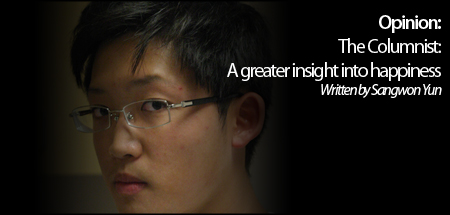
The English historian George Macaulay Trevelyan once said, “Education…has produced a vast population able to read but unable to distinguish what is worth reading.”
His comment summarizes the case presented in the documentary “Race to Nowhere” with eerie accuracy.
In the film, director Vicki Abeles illustrates the fundamental problems of American education.
In many cases, she argues, education overemphasizes test scores and grades, and this preoccupation with performance is precipitated from a myriad of issues, most prominent among which is an ill-definition of success.
American culture has evolved in such a manner that success is proportional to the amount of material wealth you generate within your lifetime.
As a result, the students of today are placed in a position where they must juggle an arguably unreasonable amount of academic work in addition to a whole host of extracurricular commitments.
This mélange of activities is an effort to get into “the top college” so one can secure a “good job” and make a lot of money and ultimately “be happy.”
Abeles argues that this system of education marginalizes certain skills that are essential to being a functional individual, such as critical thinking and problem solving. Instead, the curriculum is arranged in such a manner that is oftentimes “a mile wide and an inch deep”; a large quantity of material is covered but pursued with little profundity.
In addition, the well-being of the student suffers from a whole of consequences, among which include sleep-deprivation, cheating, low self-esteem in the face of failure, and depression, the most severe cases of which involve suicide.
Abeles’ argument resonates strongly with a fundamental kindergarten truth that the American education system must always keep in mind: everybody is special.
Part of the current system’s flaws lie in the fact that it does not account more for the variety of individuals that do not fit the dictated mold.
In order to address this in the short term, drawing the line between an academic challenge and academic purgatory seems an effective method for damage control.
Because each individual is unique, finding an adequate level of intensity would allow for the student to push his, but remain within a range in which he could remain physically and mentally healthy.
Yet, beyond this, two central questions should be addressed by everybody: what is the purpose of education, and how should we define “success”?
In looking at the former, the question will most likely receive a variety of answer as unique as the people who respond.
My personal experience has led me to believe that education is the means through which an individual can mature and become a learned person as well as a contributing member of society.
Beyond the subjectivity, though, is education doing its job? If it is doing its job right now, is it doing the right job?
In regard to the latter, the definition of success in life is ultimately up to each individual to define.
Yet in the long run, the cultural definition of success in America must be revised if we are to hope for substantial change in system of education.
As a nation, we have to realize that success is not limited to the college a person graduates from, or a person’s annual salary, but the happiness and satisfaction one gets from doing one’s job.
We have to realize that success can be defined by more than a number on a sheet of paper, but the fact that a person can live life with purpose, inspiration, and energy.
It must be remembered that happiness lends meaning and purpose to what an individual does.
In its absence, the inevitable question arises: “what’s the point?”




